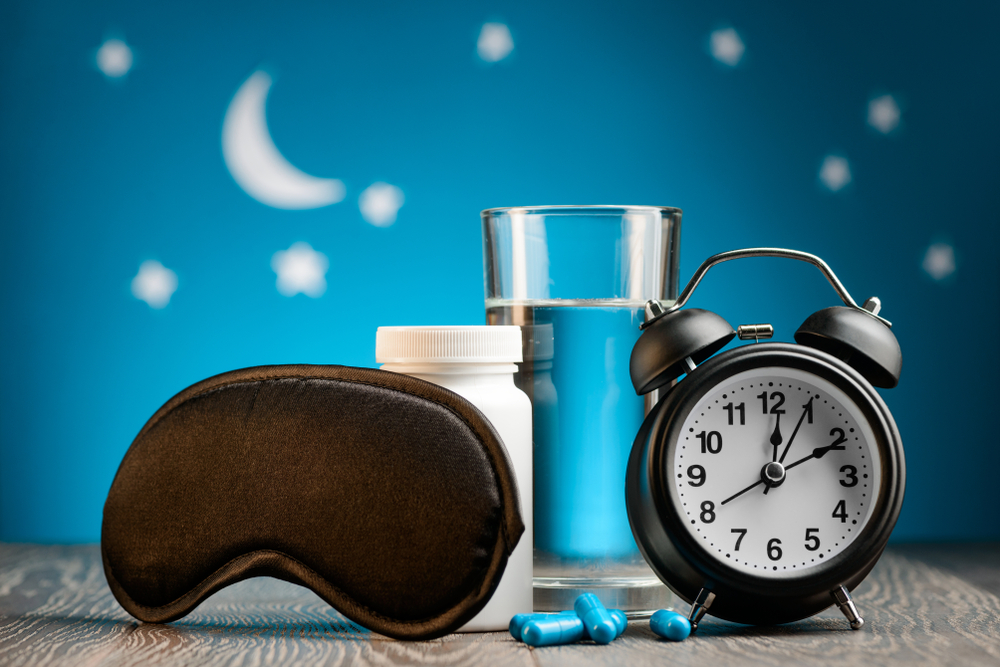![melatonin[1]](https://thelifepilot.com/wp-content/uploads/2022/11/melatonin1-696x464.jpg)
Did you know that there is a right way – and many, many wrong ways – to take melatonin? Melatonin is a hormone that your body is supposed to produce all on its own. But sometimes it doesn’t do it right, sometimes you don’t produce enough melatonin, and sometimes you need help producing it at the right time of day. 1
When this happens, supplementing with melatonin can be essential for restoring healthy sleep. But there’s a dark side to melatonin supplements that most people don’t know about. Below, we will explain to you how melatonin works. Then we’ll talk about the best ways to supplement melatonin so that you can get better, more restorative sleep.
What is Melatonin?
Melatonin – sometimes referred to as “the darkness hormone” or “the vampire hormone”, but most well known as the body’s sleep hormone – is a hormone your brain releases when it detects low light levels. Melatonin in and of itself does not make people feel drowsy. Rather, it is the finger that flicks the dominoes which starts the chain reaction that creates drowsiness.
To put it in simpler way: melatonin is the guy with the gun at a track meet who signals the runners to start racing. Melatonin doesn’t run the race or cross the finish line for you, but it does coordinate many different physiological processes in your body which are responsible for inducing sleep. Without the help of melatonin, the body sometimes loses track of its day-night cycle, and these uncoordinated processes run around all willy-nilly. In most people, this lack of coordination is what often leads to restlessness and poor sleep.
How Does Melatonin Work?
In a healthy individual, there is a tiny spot in the brain called the suprachiasmatic nucleus. It sits just above the optic nerve, in the center of the brain. It has one job: scan the light pulses traveling along the optic nerve, and signal the pineal gland to release melatonin when it detects a low level of incoming blue light. This happens in nature after the sun goes down, because most blue light comes from the sun (although modern technology has changed that, somewhat). 2
When the suprachiasmatic nucleus detects this change in light levels, it sends out its signal, and melatonin levels rise. The amount of circulating melatonin in your system then continues to climb for several hours, peeking and beginning its daily descent around 4 AM. By the time most people are ready to wake up in the morning, the vast majority of melatonin from the night before is no longer in their system. This frees up the body to start other physiological processes which promote wakefulness and get you ready to start your day.
When Melatonin Doesn’t Work
The people who have the biggest problem producing melatonin are those who get too much blue light exposure in the evening hours. In nature, this is nearly impossible because blue light comes from the sun. Therefore, it isn’t available after it sets for the day. For modern man, however, this isn’t the case anymore.
The Problem with Blue Light
But in these modern times, we are constantly being bombarded with blue light from electronic devices like televisions, computer monitors, smartphones, and more. Since it is impossible to live without these technologies and modern conveniences, protecting yourself with as little exposure as possible before bedtime is the best thing you can do to maintain a healthy day-night cycle. You need to get as much exposure to darkness as possible within a few hours of your bedtime to naturally produce healthy melatonin levels.
Jet Lag and Melatonin
As far as your circadian rhythm goes, you actually have two internal biological clocks: one that sticks to a roughly 24-hour wake-sleep cycle no matter what, and one that is heavily influenced by the circadian rhythm of the sun. But when you travel over long distances, these two biological clocks are thrown wildly out of sync, which causes you to feel tired and befuddled all the time. Most people refer to this as “jet lag”. While altering your 24-hour clock is a slow and grueling process, you can move the needle on the other clock by supplementing with melatonin. This helps both clocks move back in sync with one another more quickly and efficiently. And that’s why melatonin is one of the most effective remedies for jet lag available today.
Melatonin Supplementation

Some sleep experts would argue that melatonin supplementation is most effective for jet lag, but not all that influential for your regular nightly rest. Others would disagree with this premise. Even if the melatonin does nothing pharmacologically, there is still the placebo effect to consider. Regardless, there are right ways and wrong ways to supplement with melatonin. And if you do it the wrong way, it could drastically backfire on you!
Taking Melatonin the Right Way
The best time to take melatonin is anywhere between 30 to 60 minutes before your head hits the pillow. Melatonin has a relatively short half-life in the body, so you don’t need to take it during the day in order to feel its effects later on at night. And taking it before you are ready for sleep could be dangerous if you have to operate heavy machinery or do some other complicated tasks right before bed.
Choosing the Right Supplement

Next, make sure you take a melatonin supplement you can trust. Melatonin supplements are not as closely regulated as, say, prescription sleeping pills; so some manufacturers can get away with some pretty loose quality control standards. Independent testing has revealed that cheap melatonin supplements can sometimes contain anywhere from 83% under to 478% over what is advertised on the label. And that can be extremely problematic for your health.
Dose-Dependence and Melatonin Sensitivity
Melatonin is very dose-dependent. The body is very sensitive to it, and if you take too much of it, it can do some real damage over the long-term. Some research has shown that people who take more than 5 mg of melatonin per night over a long period of time lose the ability to produce melatonin on their own. This is similar to how bodybuilders who abuse steroids for too long lose the ability to produce their own testosterone.
Furthermore, getting too much melatonin is like bringing the wrong gun to that track meet we mentioned earlier. If you used a canon instead of a cap gun in order to signal a start to the sleep race, the runners might get scared and run off in different directions or be too afraid to run at all. Taking too much melatonin has a similar effect in the human body. So the moral of the story is: be very careful about your dose!
If you take melatonin at the right time, if you take the right amount of it, and if you try to take it on an as-needed basis, it shouldn’t disrupt your natural rhythm. It can be a helpful and effective way to regulate your body’s circadian rhythm for optimal sleep. And getting great sleep is life-changing for most people’s health and wellness.
References:






